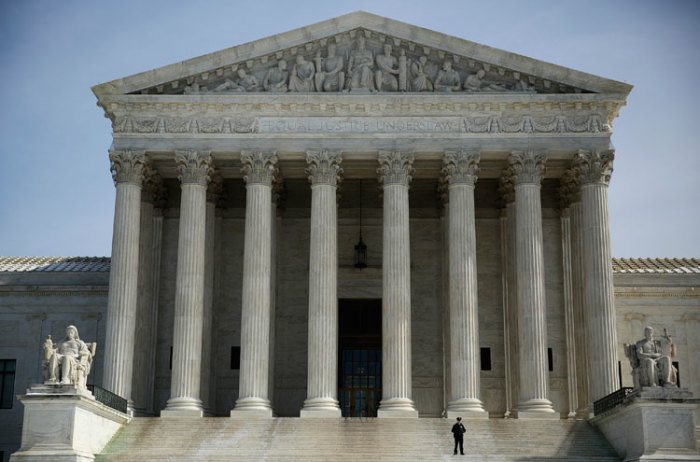Supreme Court Halts Gay Marriage in Virginia

The U.S. Supreme Court has granted a stay in a lower court decision ruling the Commonwealth of Virginia's same-sex marriage ban is unconstitutional.
The nation's highest court granted a request to delay the decision on Wednesday, which means that for the time being Virginia's constitutional amendment defining marriage as the union of one man and one woman remains in effect.
Attorney General Mark Herring, who months back refused to defend the Commonwealth's ban, nonetheless said in a statement that he approved of the delay.
"Although it is painful to keep Virginia's same-sex couples and their children waiting any longer to enjoy the rights guaranteed by the 14th Amendment, the rule of law requires that this court be afforded the time needed to settle the question," said Herring.
In 2006, 57 percent of voters in Virginia approved an amendment to their constitution legally defining marriage as being between only one man and one woman.
Virginia was one of multiple states in that election year to have majorities of their respective electorate approve constitutional bans.
In February, a district court judge ruled the amendment unconstitutional after hearing arguments in a lawsuit brought by two same-sex couples.
Judge Areda Wright Allen declared the ban unconstitutional, arguing that it violates the Equal Protection and Due Process Clauses of the 14th Amendment.
Allen issued a stay for the decision, thus preventing same-sex couples from getting marriage licenses, and it was appealed.
Last month, a three-judge panel of the U.S. Court of Appeals for the Fourth Circuit in Richmond ruled 2-1 that the ban was unconstitutional.
"We recognize that same-sex marriage makes some people deeply uncomfortable," wrote the two-judge majority.
"However, inertia and apprehension are not legitimate bases for denying same-sex couples due process and equal protection of the laws."
The presiding Judge Paul Niemeyer, the dissenter in the decision, wrote that he disagreed with the reasoning of his two peers.
"I do strongly disagree with the assertion that same-sex marriage is subject to the same constitutional protections as the traditional right to marry," wrote Niemeyer.
"I would reverse the district court's judgment and defer to Virginia's political choice in defining marriage as only between one man and one woman."
Brian Brown, president of the National Organization for Marriage, said in a statement released Wednesday that he was "pleased" with the Supreme Court granting the stay.
"We had called upon the court to take this step and are gratified that they will now be able to carefully consider the issues," said Brown.
"This is another indication that the rush to judgment declaring marriage to be unconstitutional is not only premature, but incorrect."
The Virginia lawsuit is one of several making their way through the courts across the United States against state-level bans, some of which were approved by voters in ballot measures, on same-sex marriage.
While the pro-gay marriage side has typically won their suits, legalization of same-sex marriage has not moved forward in those states due to appeals and stays. One court upheld a state-level ban.
Many believe that it will ultimately be the Supreme Court who determines the constitutionality of the bans across the nation. Multiple states have already sent appeals to the highest court requesting that they issue a ruling on the matter.





























